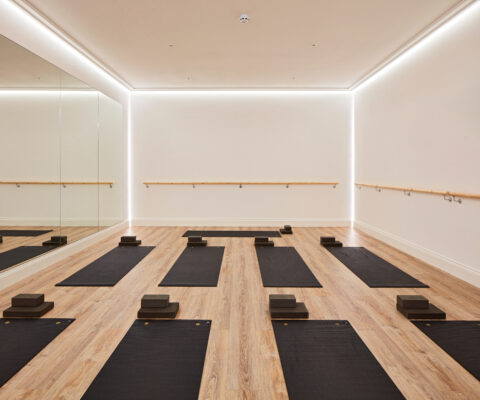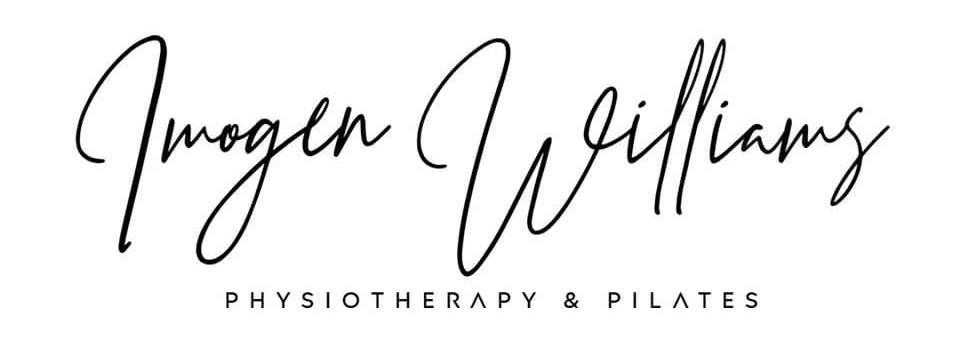FAQs
Pelvic Health Physio FAQs
All our pelvic health physiotherapy appointments will take place in a private room. For your first appointment, there will be quite a detailed discussion where you will be asked about your symptoms and the impact they are having on you.
Questions will include things like, when your symptoms started, about your general health and any medications you might be taking. We often have to ask quite personal questions due to the nature of the issues you might be having such as, how frequently you pass urine or open your bowels, about previous or current pregnancies or if symptoms are impacting on your sex life. You do not have to answer any questions that you do not feel comfortable answering.
After we have gathered all the information from our discussion, we would usually then move on to a physical examination. This will vary depending on the reason you have come to physiotherapy.
If we feel there may be an issue involving the pelvic floor muscles then it may be appropriate to perform an internal examination with your consent. This may be an internal vaginal examination or a rectal examination depending on the nature of the symptoms. The examination will be explained to you fully beforehand and you are encouraged to ask any questions if you have any. You are also welcome to have someone with you for any part of the examination if you wish (informal chaperone) or we can arrange for one of our trained physiotherapists to be present for the examination (formal chaperone). We ask that you inform us on booking your appointment if you would like us to arrange a chaperone for your appointment.
The internal examination usually takes around 10-15 minutes and should not be painful. Please let your physiotherapist know if you are uncomfortable and the examination can be stopped at anytime. It is a very useful part of the assessment process and can help your physiotherapist guide you on the most appropriate treatment.
For symptoms such as pelvic girdle pain or low back pain in pregnancy, we may not need to do an internal examination. This type of assessment will likely involve assessing your back, hip and abdominal muscles and looking at your movement.
By the end of your initial assessment we will discuss our findings with you and make a plan together about specific advice and exercises that may help you. We will then arrange a follow -up appointment with you as required. For some people this may be once or twice a week or once or twice a month or sometimes longer depending on the individual.
A new appointment with the pelvic health physiotherapist is £85 (60 mins). Follow-up appointments for the same condition are £60 (45 mins). NB: a new appointment slot will need to be booked if you have attended before but wish to be assessed for a new problem.
If you are attending for an assessment of your back or pelvis then your physiotherapist will need to be able to visualise that area. Therefore, trousers or shorts that can be rolled down slightly at the waist or tops that can be rolled up or a vest/crop top can be useful.
A list of medications you are taking, any results from x-rays/scans/blood tests that you have or clinic letters relating to your condition may also be helpful.
If you are pregnant then your maternity notes can be useful.
Unfortunately we do not accept health or medical insurance finance options for our pelvic health appointments
We advise on and treat the following conditions in pregnancy:
- Low and mid back pain
- Pelvic girdle pain
- Rib pain
- Urge urinary incontinence (sudden urge to pass urine and leaking)
- Stress urinary incontinence (leaking with exertion such as laughing, sneezing or running)
- Overactive bladder (going to the toilet very frequently and urgency)
- Pelvic organ prolapse
- Birth preparation advice
- Exercise in pregnancy advice
Your assessment will be tailored to you in terms of your symptoms and how far along you are in your pregnancy.
We will be unable to perform an internal vaginal examination if you are less than 12 weeks into your pregnancy, or if you have any complications with your pregnancy. Your physiotherapist will check this with you at your appointment or you can contact the clinic directly for any specific questions on [email protected]
You can book in for a pelvic health physiotherapy appointment as soon as you feel ready after delivering your baby. However, we will be unable to do an internal vaginal examination until you are 6 weeks post-natal. It is also never too late to begin your post-natal rehabilitation if you delivered 1 year ago or 10 years ago or more! We can assess and treat the following:
- Urge urinary incontinence (sudden urge to pass urine and leaking)
- Stress urinary incontinence (leaking with exertion such as laughing, sneezing or running)
- Overactive bladder (going to the toilet very frequently and urgency)
- Pelvic organ prolapse
- Pelvic pain
- Abdominal muscle separation
- Pelvic floor rehabilitation following perineal tears or episiotomy
- Pain or discomfort during sexual intercourse
- Faecal Incontinence or urgency
- Return to exercise and running rehabilitation
Yes you are more than welcome to bring your baby to your pelvic health appointment. We appreciate it can be difficult to find childcare to attend appointments as this can be especially difficult if your baby is very young.
Yes, you are more than welcome to bring someone with you to your appointment for part or all of your assessment. If you would like a formal chaperone present for your internal examination, we can arrange that for you. We ask that you make this request on booking your appointment so arrangements can be made in advance.
Yes, most of the time we can still do an internal examination if you are on your period. If your period is very heavy then the internal examination can be performed at your next appointment instead.

Online Classes FAQs

My classes are suitable for most people and for most levels of ability. However, there are some conditions or circumstances where these online classes would not be appropriate.
These classes are not suitable for pregnant women. Pilates is an excellent form of exercise during pregnancy but it would need to be a pregnancy-specific class which these classes are not.
These classes are not suitable for the first 6 weeks after having a baby. There are some excellent Pilates exercises that are appropriate and helpful in those first few weeks but again, a specific class would be more appropriate and these classes are not designed for this.
These classes are not suitable for those with moderate or severe osteoporosis. Again, Pilates is a great form of exercise for those with osteoporosis as it is low impact strengthening. However, with moderate or severe osteoporosis, some exercises need to be modified to protect the spine and therefore, these classes would not be appropriate and a more specific osteoporosis class would be better suited.
These classes are not suitable for those with acute injuries such as fractures or recent surgery. If you are unsure whether the classes are suitable for you, please message me on the contact form on the homepage and you can always seek advice from your GP.
These classes are not suitable for pregnant women. Pilates is an excellent form of exercise during pregnancy but it would need to be a pregnancy-specific class which these classes are not.
These classes are not suitable for the first 6 weeks after having a baby. There are some excellent Pilates exercises that are appropriate and helpful in those first few weeks but again, a specific class would be more appropriate and these classes are not designed for this.
After 6 weeks, if you are medically fit, then these classes are a great way to help strengthen up the pelvic floor and core muscles as well as improving upper body strength, glute strength and posture. All super important after having a baby!
I would strongly advise to pause the classes if any symptoms develop while doing the exercises such as: pain, leaking/incontinence, any feeling of bulging or symptoms of prolapse. This would require a referral to a Pelvic Health Physiotherapist via your GP or midwife. Once assessed, advised and appropriately treated, resuming the Pilates classes may be an excellent part of your rehab and I would be happy to pause your membership until you are able to resume the classes.
Being aware of any tummy separation (diastasis recti) is important at any stage after having a baby. If you see or feel any ‘doming’/bulging or any caving in/collapsing down the midline of your abdominals when doing the exercises and you are unable to correct it by engaging your pelvic floor or core muscles then I would advise you lower the level of the exercise. That might mean following the easier option shown in the corner of the screen until you are strong enough to correct these symptoms. Again, a Pelvic Health Physiotherapist can assess and advise you on this if you are concerned or unsure.
You can purchase a course of 6 classes for £30 (£5 per class). A new class will be released each week for 6 weeks but you then have 8 weeks to complete the course in case you need a bit of time to catch up.
After the 8 weeks, access to that course will end unless you re-book and sign up for the next course. If you sign up to the next course, you will be able to access all the classes in the previous course as well as the classes on the new course.
While enrolled in the courses you can do the classes as many times as you like which makes the classes excellent value for money and really convenient to fit into a busy schedule.
Once you have enrolled onto a course, a new Pilates class will become available for you each week for 6 consecutive weeks on the website. You will have 8 weeks to complete the course (unless you sign up for the next course then you will continue to have access to the classes).
The benefit of doing my online classes is that you can do the classes whenever and however many times you like. You may choose to do one class per week or you may choose to workout 2-3 times per week. This makes these classes excellent value for money and extremely convenient to fit into our busy schedules.
You do not need any equipment to do these classes. All you need is some space to lie down. You can of course use a Pilates/yoga mat if you have one or a towel works just fine. If you have a head block to rest your head on, that can be helpful to keep good neck alignment but again, a small folded towel works well for this.
I will make suggestions for when extra equipment could be used if you do have some resistance band or light hand weights available. This is not essential at all and is completely up to you.
I will release specific classes separately that involve equipment and you can use equipment you already have at home or you can purchase small equipment from the website.
The classes are suitable for most levels and abilities and I will explain and demonstrate all the exercises prior to them being performed so you do not need to have previous experience of Pilates classes.
I often show different options for exercises to make them more of less challenging depending on your level. This is easy to follow in my classes as there will be a small screen in the corner showing how you can adapt the exercise.
I also have a short information video available once enrolled for you to watch prior to your first class that will explain some of the ‘Postures, Prompts and Positions’ that we will use in the class to help you with your technique.
The classes are between 45-60 minutes long. This includes a warm up at the beginning of each class which is an important part of your workout.
My HIIT Pilates classes are between 20-40 minutes long. This stands for High Intensity Interval Training Pilates and involves a high intensity exercise followed by a more controlled Pilates exercise. These classes are shorter as they are more intense.
I am a qualified Physiotherapist with a Batchelor of Science degree in Physiotherapy. I am a member of the Chartered Society of Physiotherapy and I am registered with the Health and Care Professions Council.
I have 13 years of experience working within the NHS and currently work as a Senior Musculoskeletal Specialist Physiotherapist.
I have completed my Pilates training and certification with the APPI (Australian Pilates and Physiotherapy Institute) who are renowned within the industry for safe and effective Pilates exercises. I have completed my Matwork Training series levels 1-3 and completed my Matwork Certification Exam. I have also completed the APPI ante and post natal Pilates course and have 5 years experience teaching mat-work Pilates.

